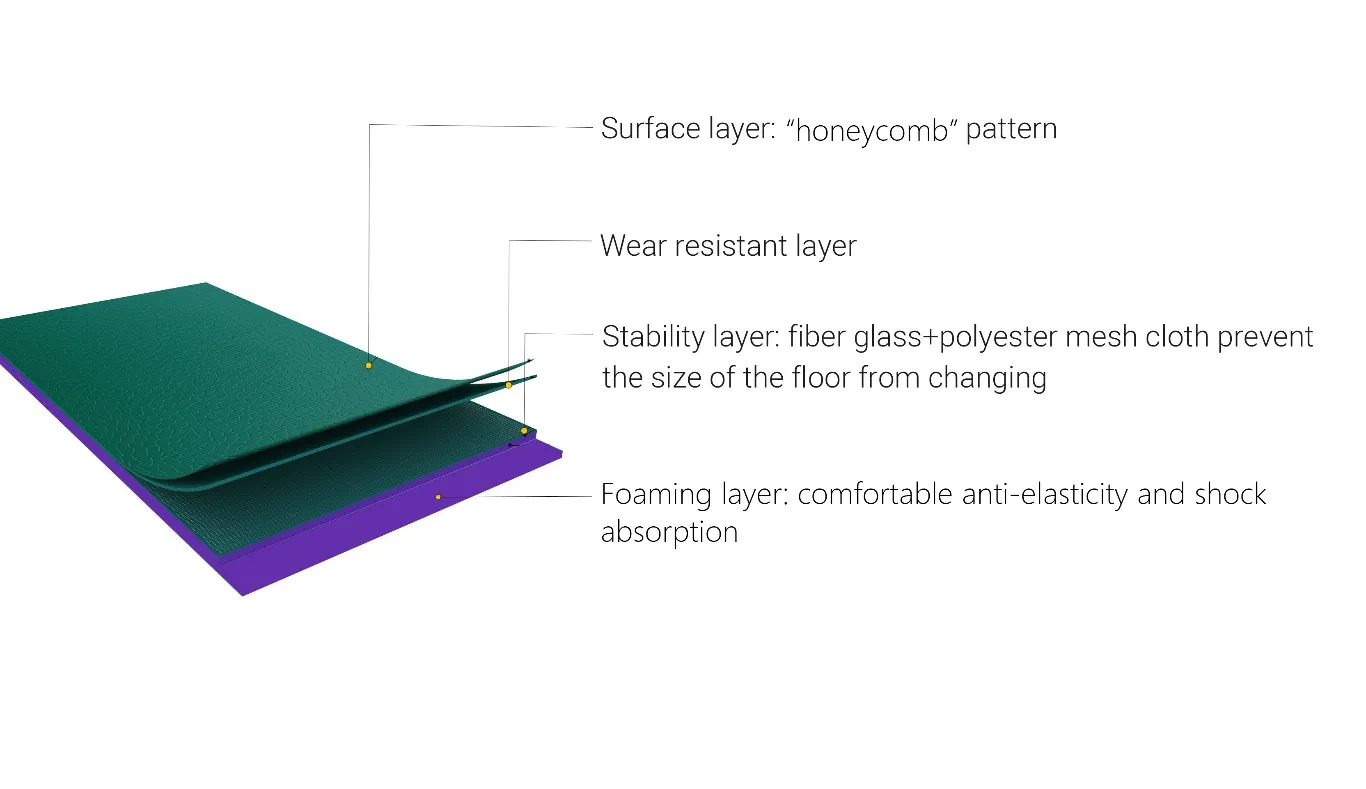Affordable Options for PVC Floor Sheet Roll Prices and Styles
Understanding the Pricing of PVC Floor Sheet Rolls
When it comes to flooring options, PVC (Polyvinyl Chloride) floor sheets have gained considerable popularity for both residential and commercial spaces due to their durability, versatility, and affordability. One of the key aspects to consider when choosing PVC flooring is the pricing of floor sheet rolls. This article delves into the factors influencing the cost of PVC floor sheet rolls and offers insights into how to evaluate the overall value of this flooring solution.
Factors Influencing Prices
1. Quality of Material The quality of the PVC material significantly impacts the price. Higher quality PVC sheets often feature enhanced durability, better resistance to wear and tear, and lighter maintenance requirements. Premium options typically use advanced manufacturing techniques that improve their overall performance, resulting in a higher price point. In contrast, lower-quality options might be cheaper but may require more frequent replacements or repairs, making them less economical in the long run.
2. Thickness and Density The thickness of PVC floor sheets usually ranges from 1.5mm to 5mm or more. Thicker sheets generally provide better sound insulation and comfort underfoot, but they also come with a higher price tag. Additionally, density plays a critical role; denser sheets are often more resistant to impacts and punctures, adding to their lifespan and effectiveness, which also correlates to increased costs.
3. Design and Aesthetics The design, color, and texture of PVC floor sheet rolls can range from plain to intricate patterns, including wood, stone, or tile looks. More elaborate designs often come with higher costs due to the printing technology and coloration processes involved. If aesthetics are crucial for your space, investing in higher-priced options may be worthwhile.
4. Brand and Manufacturer Different brands have varying reputations, and established manufacturers may charge a premium for their products based on brand reliability and customer service. Conducting proper research on brand reliability can help in determining if the higher-priced products offer better long-term value.
pvc floor sheet roll price

5. Market Demand Pricing can also fluctuate based on market demand. During periods of high demand, prices may increase, while overstock or low demand seasons can lead to discounted rates. It is beneficial for consumers to keep an eye on market trends to make informed purchasing decisions.
6. Installation Costs The price of PVC floor sheet rolls doesn’t just encompass the product itself; installation costs are also a significant aspect. Professional installation may incur additional expenses, so it is essential to factor that into your overall budget. Alternatively, some consumers may opt for DIY installation, which can cut costs but requires skill and the proper tools.
Evaluating Overall Value
When considering the price of PVC floor sheet rolls, it’s critical to look beyond the initial purchase cost. Consider the total lifecycle cost, which includes installation, maintenance, and potential replacement expenses. A cheaper product may appear attractive at first, but if it wears out quickly or requires frequent upkeep, the initial savings could be negated.
Additionally, think about the specific requirements of your space. For high-traffic areas, investing in more robust options may be necessary, while low-traffic zones may accommodate less expensive rolls.
Conclusion
In conclusion, pricing for PVC floor sheet rolls can vary widely based on several factors including quality, material thickness, design, brand reputation, and market demand. While it’s tempting to opt for the cheapest option available, considering the overall value and lifespan can lead to a more satisfactory investment. Always assess your specific needs, budget constraints, and long-term goals to make an informed decision. In the end, PVC flooring can offer an excellent balance of aesthetics, durability, and affordability, making it a wise choice for many customers looking for reliable flooring solutions.
-
Commercial Parquet Flooring: Considerations of Aesthetics, Practicality, And SustainabilityNewsApr.15,2025
-
PVC Sports Flooring: Performance, Applications, And Development TrendsNewsApr.15,2025
-
PP Interlocking Floor: a Paving Solution That Combines Functionality and SustainabilityNewsApr.15,2025
-
Plastic Flooring Tiles Outdoor: Practicality, Sustainability, And Development ProspectsNewsApr.15,2025
-
On the Application of PVC Flooring for Badminton Court in Badminton VenuesNewsApr.15,2025
-
Commercial Wood Flooring: the Balance Between Aesthetics, Functionality, And SustainabilityNewsApr.15,2025
-
The Ultimate Guide to Futsal FlooringNewsMar.27,2025

